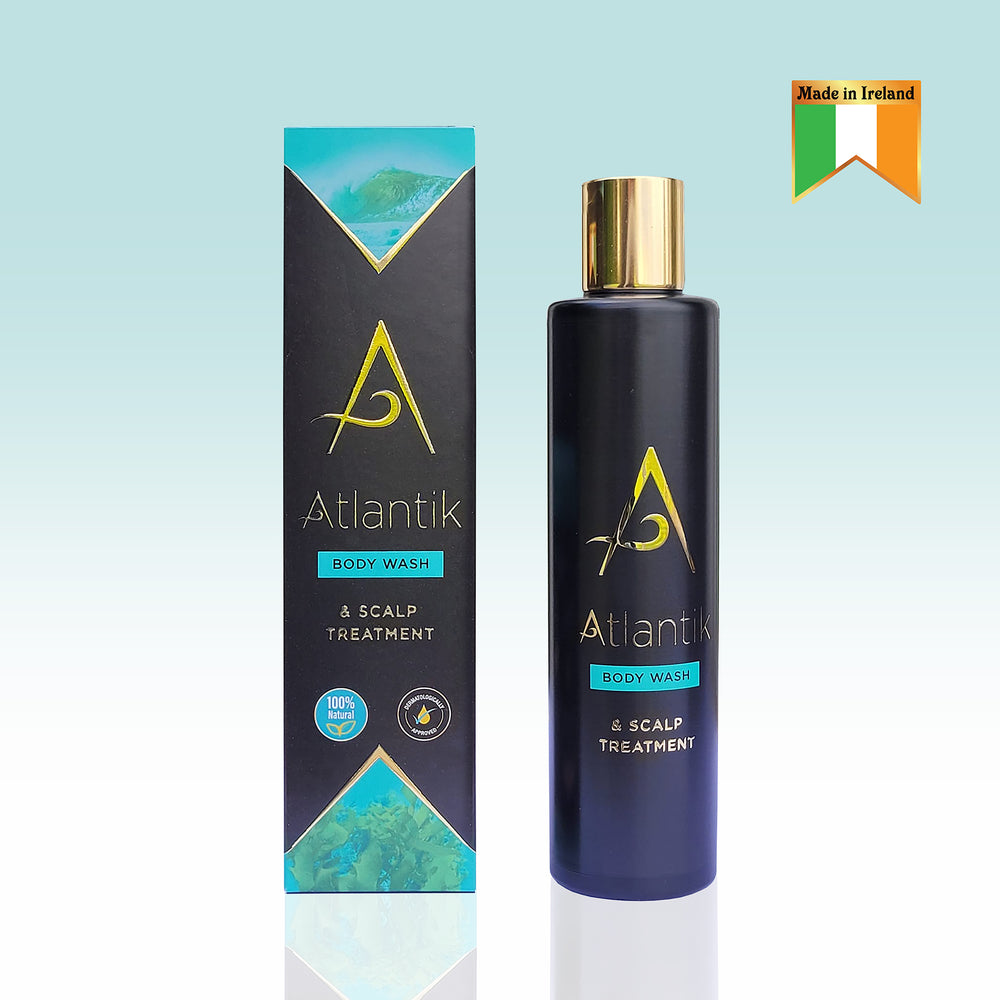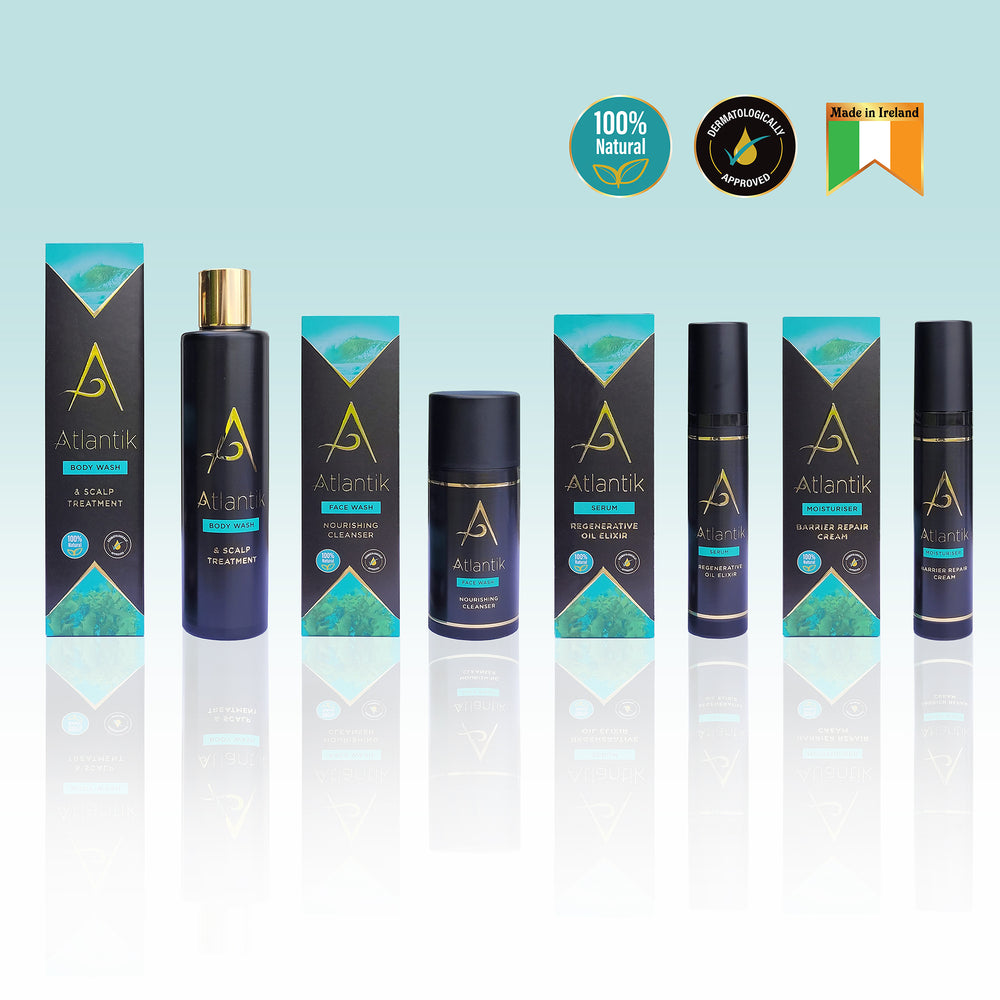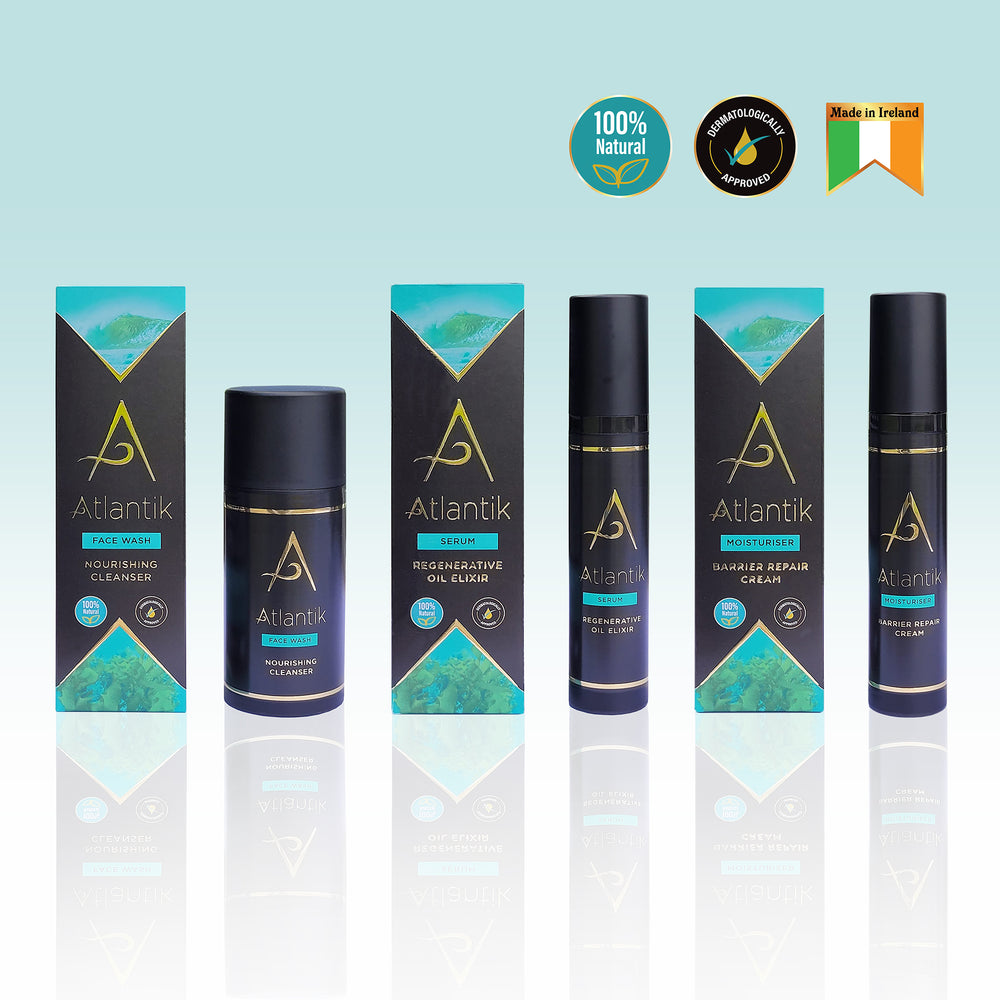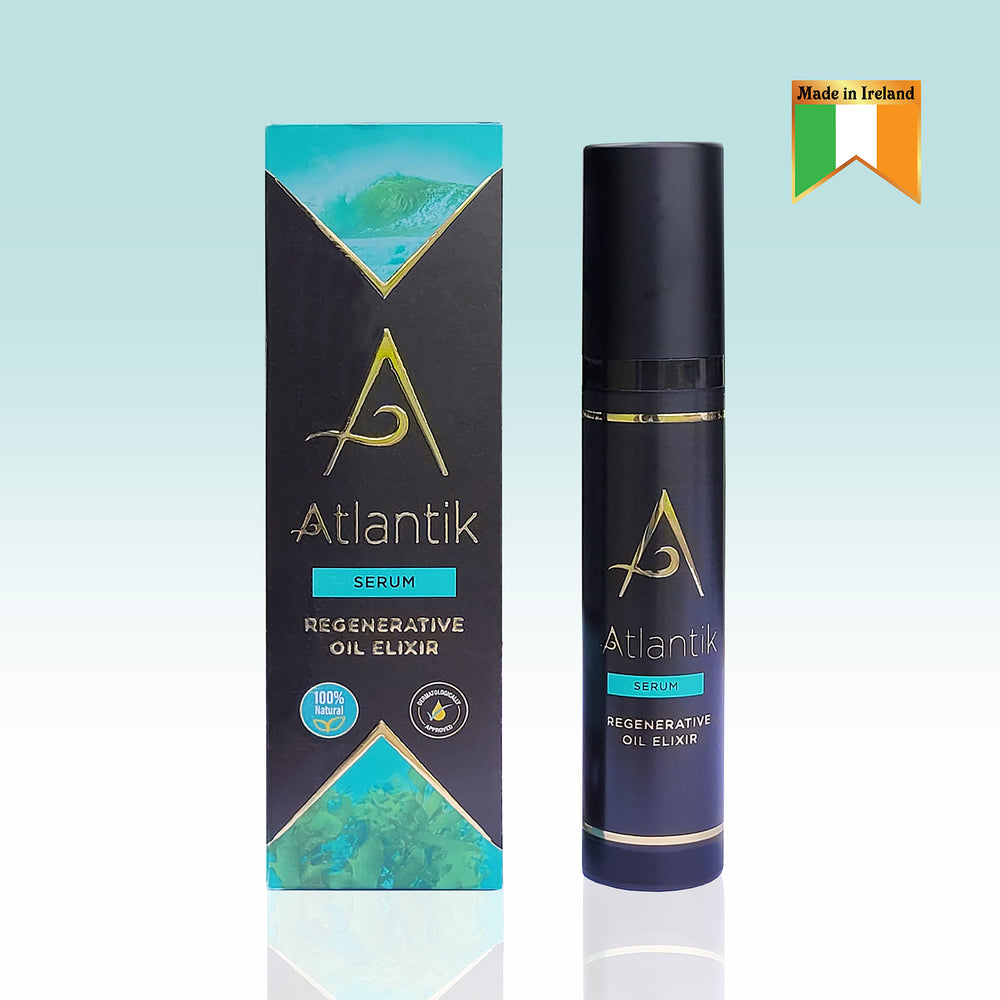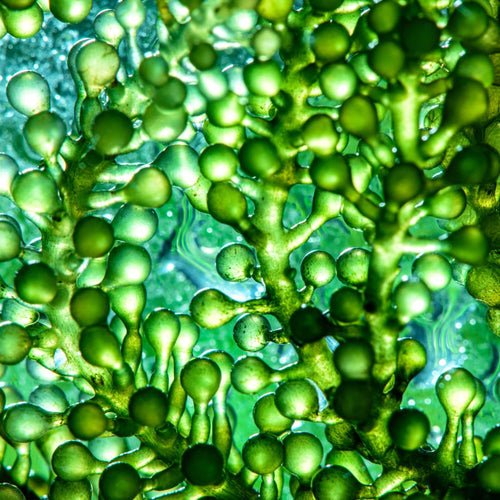
When it comes to skincare, omega-3 fatty acids are often celebrated for their incredible benefits. But did you know not all omega-3s are created equal when it comes to improving your skin? The three main types of omega-3s—ALA (Alpha-Linolenic Acid), EPA (Eicosapentaenoic Acid), and DHA (Docosahexaenoic Acid)—offer different levels of impact.
While ALA is the most commonly used in products and supplements, DHA stands out as the true game-changer for skin health, particularly for anti-inflammation, skin barrier support, hydration, and anti-aging.
Here’s why DHA is the superstar—and how we’ve done what few others have: directly incorporating it into our Veil moisturizer.
The Three Omega-3s and What’s Commonly Used
- ALA is the omega-3 most people are familiar with. Found in plants like flaxseed, chia, and walnuts, it’s widely available and often included in skincare products. However, ALA must be converted into DHA in your body to unlock its real potential. The problem? Only 1–5% of ALA actually converts to DHA, making it a less impactful option for skin.
- EPA, found in marine sources, EPA is often paired with DHA in supplements. It plays a role in reducing inflammation but doesn’t deliver the deep hydration or barrier-repairing benefits that DHA does.
- DHA, sourced from marine microalgae like Schizochytrium sp., DHA is the standout. Unlike ALA, DHA doesn’t need to be converted—it’s ready to go. It delivers incredible benefits for your skin, including anti-inflammatory action, hydration, skin barrier repair, and anti-aging properties.
Why DHA is the Standout for Skin Health
DHA is the gold standard for omega-3s in skincare because of its bioavailability and potent effects. It integrates directly into the skin’s lipid barrier, improving hydration, repairing damage, and reducing inflammation. DHA also helps protect against aging by neutralizing oxidative stress and boosting collagen production. For conditions like acne, eczema, or psoriasis, DHA’s anti-inflammatory properties are unrivaled.
Why Few Brands Use DHA
Despite its incredible benefits, DHA is rarely used in skincare products due to two major challenges:
1. Cost: High-quality DHA comes from Schizochytrium sp., a type of marine microalgae that’s expensive to source sustainably.
2. Formulation Challenges: DHA is prone to oxidation and requires advanced stabilization techniques to preserve its potency. Additionally, it’s oil-based, making it difficult to incorporate into water-based formulations without compromising texture or effectiveness.
Because of these challenges, most brands stick to cheaper and easier-to-formulate options like ALA or blended fish oils, which don’t deliver the same results.
How Atlantik Is Leading the Way
With Veil, we’ve done what few others have: directly incorporating Schizochytrium sp. (40% DHA) into our formulation. This makes our Veil moisturizer one of the few products in Ireland, the UK, and beyond to offer direct DHA in its most bioavailable form.
Why does this matter? By skipping inefficient sources like ALA or fish oils, Veil delivers DHA that works immediately to:
-
Calm inflammation
-
Lock in hydration
-
Strengthen the skin barrier
-
Reduce fine lines and wrinkles
Our approach required advanced formulation techniques, including stabilization with antioxidants like Vitamin E and Coenzyme Q10. While it’s been a costly and complex process, we believe the results speak for themselves.
The Holy Grail of Skincare
DHA is the holy grail of omega-3s for skin, and we’re proud to be among the few offering it in its purest, most effective form. While others settle for less efficient options, we’ve gone straight to the source to bring you a product that transforms skin health from the inside out.
Ready to Transform Your Skin?
Bibliography
-
Tufts University. "New Study Finds Fish Oil Omega-3s EPA and DHA Work Differently on Chronic Inflammation." Tufts Now, December 7, 2020.
-
Linus Pauling Institute. "Essential Fatty Acids and Skin Health." Micronutrient Information Center, Oregon State University.
-
Marine Drugs. "Photoprotective Properties of Omega-3 Fatty Acids in Protecting Skin from UV Damage." MDPI, Vol. 16, Issue 8, 2018.
- National Institutes of Health. "Omega-3 Fatty Acids: Health Professional Fact Sheet." Office of Dietary Supplements.


